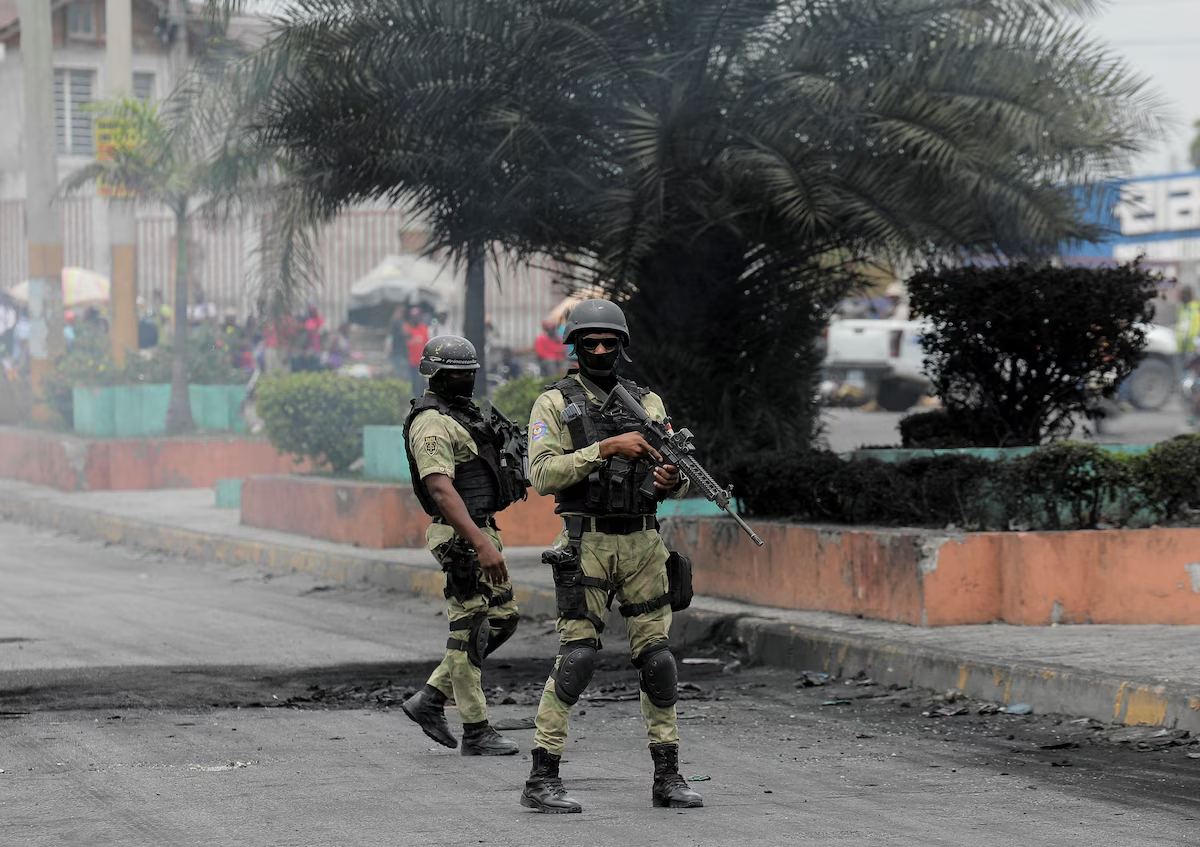Survivors of a devastating gang attack in central Haiti last week have shared harrowing accounts of waking up to gunfire and embarking on long, perilous journeys in search of safety.
The assault, which left at least 70 people dead, has once again highlighted the deepening crisis of violence and insecurity gripping the Caribbean nation.
The massacre occurred last Thursday, 3rd October in the town of Pont-Sonde, about 100 kilometers (62 miles) northwest of Port-au-Prince, in the Artibonite region.
Armed members of the Gran Grif gang, wielding knives and assault rifles, targeted residents in what survivors have described as a deliberate attempt to murder entire families. Infants, women, the elderly, and families were among the victims.
“They tried to murder everyone,” Jina Joseph, a survivor, told The Associated Press. Joseph is among thousands of survivors who narrowly escaped the carnage.
Another survivor, Jameson Fermilus, recounted hiding in a corridor next to his house as gunfire and smoke filled the air. Alongside thousands of others, he walked for hours through dangerous terrain in a desperate search for safety. “We don’t know what we are going to do,” said Sonise Morino, a 60-year-old resident who fled alongside others. “We have nowhere to go.”
The attack displaced over 6,270 people, according to the International Organization for Migration (IOM). Many survivors sought refuge with relatives and friends in nearby communities, while others with nowhere to turn crowded into makeshift shelters in a church, school, and public plaza in the coastal city of Saint-Marc.
“These deaths are unimaginable,” said Mayor Myriam Fievre, who met with survivors in Saint-Marc.
The assault, the deadliest in the region in recent years, was reportedly retaliation for efforts by local self-defense groups to stop the gang from establishing a toll on a nearby road.
Pont-Sonde, once a small, quiet town, has now become a symbol of the brutal violence gripping Haiti, where gang-related massacres and kidnappings have become increasingly common across the capital, Port-au-Prince, and beyond.
The massacre comes just days after the United Nations reported that at least 3,661 people had been killed in Haiti in the first half of 2024 alone, as gangs continue to sow terror across the country.
The violence has left communities paralyzed and displaced thousands of residents, exacerbating the nation’s humanitarian crisis.
Haiti’s interim Prime Minister, Garry Conille, condemned the attack and issued a defiant statement following the massacre.
“To those who sow terror, I say this: You will not break our will. You will not subjugate this people who have always fought for their dignity and freedom. We will never abandon our right to live in peace, security, and justice.”
Yet despite his bold words, Conille recently acknowledged that the government is “nowhere near winning” the fight against the gangs. In a grim assessment, he admitted that efforts to contain the violence have been largely unsuccessful.
The United Nations Security Council recently extended the mandate of a Kenya-led Multinational Security Support Mission (MSS), aimed at restoring security in Haiti.
However, the mission has struggled to gain ground due to a lack of resources and insufficient funding. Conille has traveled to Kenya and the United Arab Emirates in recent days, seeking additional support for the mission in the face of the escalating violence.
As the country reels from yet another tragedy, thousands of displaced residents face an uncertain future, with many left homeless and without access to basic resources. The continued gang violence has fueled a growing humanitarian crisis, leaving communities desperate for peace and safety.
















